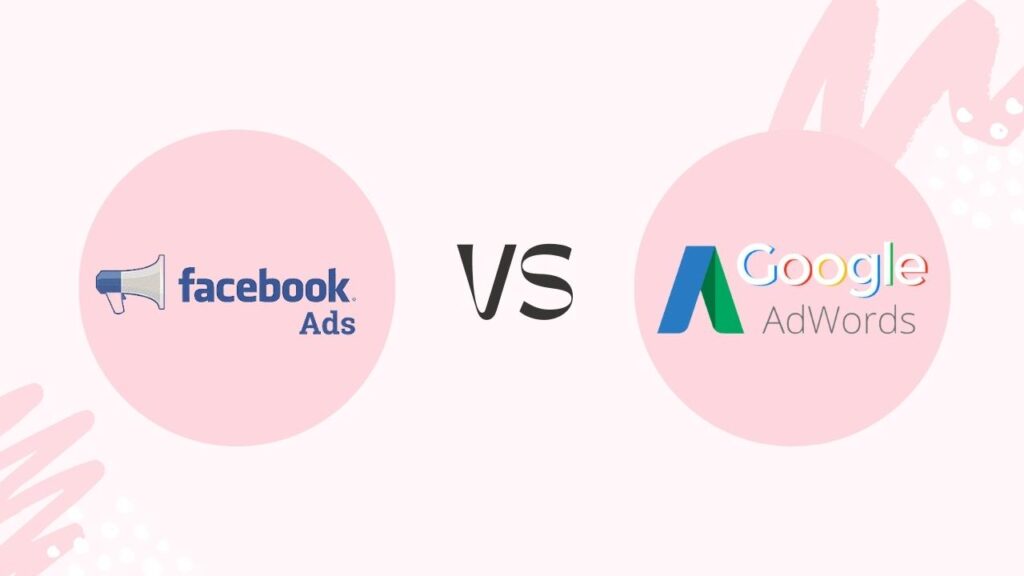
Whenever you think about advertising in the digital space, you think of PPC. It’s a guaranteed way of generating traffic and sales for a business.
The cornerstones of PPC are Google Ads (Previously known as AdWords) and Facebook Ads. While they both have similarities and are both PPC, they have fundamental differences. At Beyond Exposure, we provide top-notch digital growth solutions.
Amongst our plethora of services, our advertising services stand out. Due to our experience with online ads and PPC, we know which one works best for which brands.
So when it comes to Facebook Ads vs. Google Ads, which one’s better? Well, that’s what we will discuss in the following. By the end, you will know both platforms and how to find the best solution for your business. So without any further delay, let’s get into it!
What Is Google Ads?
Google Ads is the PPC platform developed by Google where businesses get to showcase their brands, products, and services. Google showcases these ads on search engines, non-search websites, mobile apps, and videos.
Now, Google Ads consists of several factors. Each is vital to ensuring a successful campaign. Here is the list of factors that you need to consider for Google Ads:
- Quality Score
- Ad Rank
- Location
- Keywords
- Match Types
- Headers & Description
- Ad Extensions
- Google Ads Retargeting
What Is Facebook Ads?
Facebook Ads are Facebook’s advertising platform for Facebook. It’s designed to show ads on Facebook’s Feed, Facebook Messenger, and non-Facebook apps and websites within Meta. You can use various formats in these ads to target specific demographics, like images, videos, slideshows, and other modes.
Facebook Ads also offers a lot of control over the ad spend, and Facebook lets you choose how you want the company to bill you for the service.
Facebook Ads Vs. Google Ads: What’s The Difference?
If you are on the internet, you most definitely have seen both ads. PPC is a platform that works on a bidding system where marketers enter an auction to get the ad spot they want. Then, the marketer pays for the spot whenever a user clicks on the ad.
Paid Social And Paid Search
You can boil down Google ads vs. Facebook ads to paid social vs. paid search as one is a PPC platform on social media, whereas the other is a search network. So let’s take a look at both of the platforms!
Paid Search Through Google Ads
Google ads work by showcasing ads on the SERPs (search engine results pages). Google Ads campaigns are based on targeted keywords and not audience interest. It’s Google’s way of understanding and matching user intent.
Google has a network of apps and destinations you can use Google ads to showcase your products and services. In the following, you will find the list of platforms that you can use to advertise:
- Google Search,
- Youtube ads,
- Google Display Network,
- Google Performance Max,
- Google Maps
Paid Social Through Facebook Ads
Paid social using Facebook ads is all about advertising on social media. Before you could organically gain traffic on Facebook. However, with regular algorithm changes, it has become tough to advertise organically, and that’s where Facebook ads come in.
The social media giant, however, has made advertising more lucrative as you can use Facebook ads for advertising on several platforms like:
- Facebook Feed
- Instagram Feed
- Facebook Marketplace
- Facebook Video Feeds
- Facebook Right Column
- Audience Network
- Facebook Messenger
- Oculus mobile app Feed
So those are the fundamental differences between paid social and paid search traffic. As you can see, both offer different options for advertisers and brands.
Now, to better understand Facebook ads vs. Google ads, you will need to break down the factors of PPC and see how it applies to both of them. So let’s take a look at the next!
Facebook Ads Vs. Google Ads: The Breakdown Of Factors

With PPC, there are a few different factors that make it work. While the elements are the same, each impacts users differently on other platforms. In the following, we will discuss how each factor differs for Google and Facebook ads. So let’s check it out!
Audience Numbers
You cannot think about the internet now without thinking about Google and Facebook. On Google, there are about 5.8 billion searches each day, while Facebook has more than 1.7 billion active users.
So their reach is the biggest in the digital space. For example, most of Facebook ads’ revenue comes from mobile advertising compared to Google.
To find out which one you need, ask yourself if your target audience is active on these networks and whether they look for products on search engines or social media.
Cost & ROI
A business is out there to make money, so the cost is always an essential issue regarding everything related to the brand, especially PPC advertising.
Knowing the cost of Google and Facebook ads is vital to success. On Google, the average cost of ads is around 2.69 dollars. But even higher CPC costs can reach hundreds, if not thousands.
Facebook ads, however, are a bit cheaper, and CPC can be as low as 0.45 dollars per click. However, the cost varies from industry to industry. Even though Google ads are more expensive than Facebook ads, Google ads tend to generate more revenue.
At the same time, FB is great for brand building and raising awareness. So to measure the cost and ROI, you must look at CPC and CPA (Cost per action).
User Intent
User intent is a significant factor in digital marketing; When it comes to user intent, there is no better option out there than Google ads. Google’s entire business model is about user intent and connecting people to the things they want.
Facebook, on the other hand, is more like billboard advertising. It’s the best place to reach new customers and grow your business fast.
Regarding conversion, however, Google ads reign supreme as it usually targets people looking to act on their intent. On the other hand, Facebook is fantastic at building an audience and instilling a sense of community.
In the modern day, brands need to build communities to have any chance of success, so Facebook ads play a vital role in building it up.
Targeting
Targeting options for both Facebook and Google ads are fantastic and allow marketers a level of specificity unlike any other. However, if you are looking for advanced targeting and retargeting options, then Facebook is the clear winner here.
Its list of specific audience traits far outmatches every other PPC platform because of the wealth of information that the platform gathers from its billions of users.
Formats
Regarding ad formats, Facebook is a more creative option than Google. As a result, it’s one of the best platforms to grow your audience and increase brand awareness.
When thinking about growing brand loyalty Facebook is unparalleled. The limitation of Google ads is that their format is more or less limited to a block of text.
Even with ad extensions that showcase additional information, it remains a text-based ad. In comparison, Facebook ads are usually image-based and provide a visual impact with advertisements that grow user intrigue and incite engagement.
Facebook has introduced a wide range of ad formats to ensure marketers avoid “ad fatigue,” with formats like videos, images, carousel ads, and more coming in the future. Facebook is ahead on this factor than Google.
Can You Use Both Google And Facebook Ads?
Yes, you can, and you should look to utilize both platforms together if you have the chance. An integrated PPC effort on both fronts will drive awareness, engagement, and conversion leading to sustainable steady growth for your brand.
With the two-pronged approach, you can cover multiple customer touchpoints and control the customer journey from introduction to purchase. So make sure you use both Google ads and Facebook ads.
The Takeaway
So there you go; that’s our take on the Facebook ads vs. Google ads debate. As you can see, both have different uses, but you need to use both to generate sustainability. Facebook and Google focus on getting users to businesses using other methods and platforms.
Together, they complete a comprehensive PPC effort. Now, if you are thinking about creating the perfect PPC campaign but are still determining if you will do that, then we can help you.
We at Beyond Exposure specialize in providing high-yielding affordable PPC solutions that promote sustainability. So get in touch, and let’s see how we can collaborate.
Also, if there are still some unanswered questions about this topic, feel free to drop them in the comments below or hit us up on our socials, and we will answer them all for you.
And with that being said, that’s about all we have for you today. We will come back with something new for you soon. Until then, see ya!
